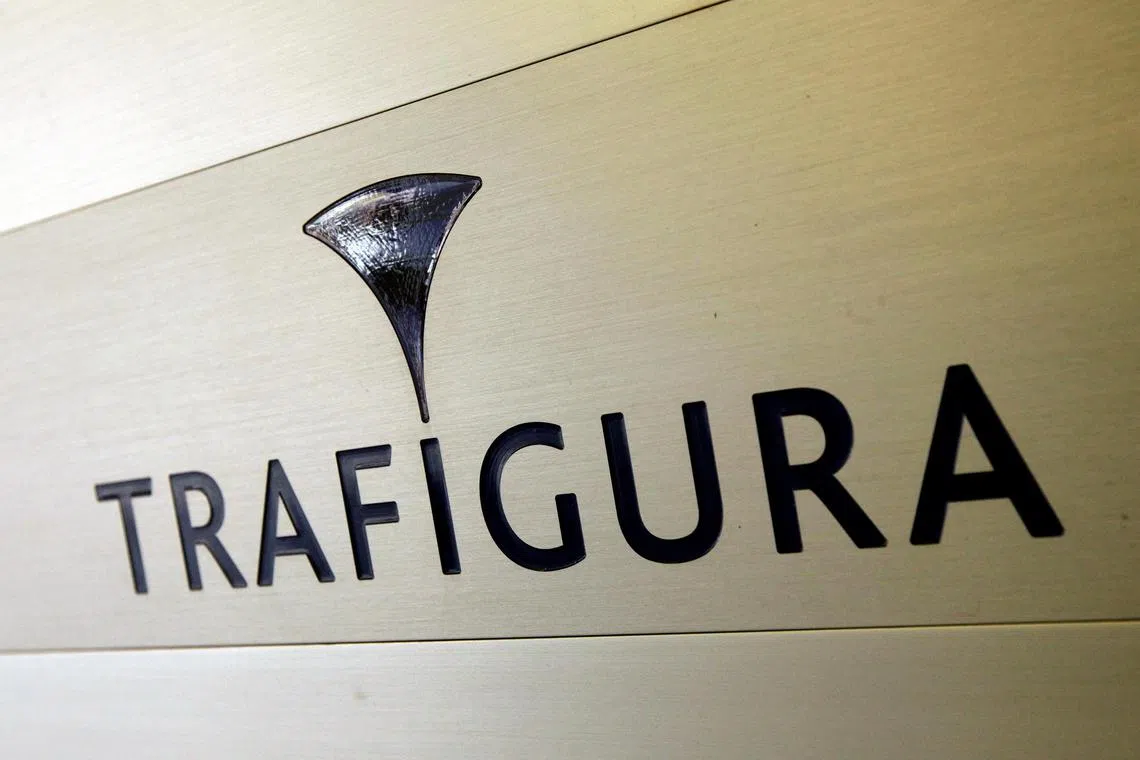Singapore-based Trafigura’s $768m loss from nickel fraud: Nemesis already notorious in metal circles
Sign up now: Get ST's newsletters delivered to your inbox

Trafigura’s losses have shocked the commodity trading world.
PHOTO: REUTERS
London – When news broke that Singapore-based Trafigura Group faced a US$577 million (S$768 million) loss from what it described as a “systematic fraud”,
It was that one of the industry’s largest players was still doing business with a man whom others had long since backed away from.
Indian businessman Prateek Gupta and his companies have a chequered history in the trading world.
Trade finance fund TransAsia Private Capital and merchant Gunvor Group lost money in earlier dealings with Mr Gupta’s companies, public filings show. Others, including banks and counterparties, became uncomfortable at times with the group’s trading activities, according to several sources who either worked at the group or did business with it.
In 2022, India’s federal police announced it was investigating allegations of fraud against Mr Gupta himself.
Mr Ian Milne, a former commodity trade finance executive at Rabobank and HSBC Holdings who worked at TransAsia for two years in 2018 to 2020 trying to recover debts from Mr Gupta’s companies, said he “had to rub my eyes a couple of times” when he saw the news last week.
“It’s very well known in the market that these guys have a highly dubious reputation,” Mr Milne said in an interview. “Most people haven’t dealt with them for many years.”
Trafigura’s losses have shocked the commodity trading world, demonstrating that even one of the largest companies is not able to avoid the blow-ups and risks that have plagued the industry in recent years, and raising questions about the whole sector’s risk management.
Trafigura said that it began investigating after identifying a number of red flags.
“This was a systematic fraud perpetrated after a long and legitimate business relationship dating back to 2015 that involved misrepresentation and widespread falsification of primary and supporting documentation,” a spokesman for the company said. “Any fraud is an opportunity to review and tighten systems and procedures and a thorough review is under way.”
Mr Gupta was born in 1979 into a commodity trading family. His father Vijay was a steel trader who represented Brazilian and Spanish companies importing iron and steel products into India in the 1980s and 1990s. When his father died in 2009, Mr Gupta took over the running of the family company, Mumbai-based Ushdev International, with his mother Suman as chair.
At its peak in the early 2010s, the company had a market capitalisation of about US$250 million.
In person, Mr Gupta is charming and rarely flustered, say several people who have done business with him.
“He has a very laid-back style. Whatever the problem is, he’ll say it’s not really a problem, it’s all going to be solved,” said Mr Milne, who now works for MonetaGo, which builds technology to help banks and others avoid trade-finance frauds.
Over the years, Ushdev branched out into developing wind power assets, but it still focused on metal trading. Mr Gupta added entities in Singapore, Malaysia, Dubai, Britain and Switzerland, including TMT Metals and companies under the banner of UD Trading Group.
In a 2011 interview published by Indiainfoline.com, he described his business as India’s third-largest metal trading company and said it had been doubling in size over the previous years.
“The metal business is back-to-back business,” he said. “We don’t face any kind of downside.”
For some in the industry, the Gupta companies’ trading activity raised question marks, said sources familiar with the matter. The companies would sometimes buy and sell large volumes of metal for little apparent commercial purpose, some of the sources said.
Mr Jonas Rey, chief executive of Athena Intelligence, a corporate intelligence company in Geneva that provides support to trade finance entities, said he investigated entities, including TMT, on behalf of several clients.
“We provided intel to multiple clients on TMT’s involvement in what we called a carousel fraud,” he said. “You have one cargo in the middle, you create 10 companies around it, and they sell the cargo to one another. One cargo gets financed 10 times. It’s like financial musical chairs. Eventually everything comes crashing down.”
Several companies came to regret their dealings with Mr Gupta. Gunvor was left with exposure to Ushdev in the tens of millions of dollars when it got into financial trouble, according to company filings and sources familiar with the matter. The exposure led to a relatively small loss for Gunvor as it made an insurance claim. Still, it was a blow that coincided with Gunvor’s decision to close its metal-trading desk in 2016.
TransAsia is still embroiled in legal disputes with Gupta companies over alleged unpaid debts linked to its financing of trade in metals, including copper. In one instance that has been made public in Singapore courts, the trade finance fund claims that Mr Gupta’s UD Trading Group Holding owes it US$63 million.
In July 2022, India’s Central Bureau of Investigation (CBI) said it had opened an investigation into Mr Gupta and his mother, as well as Ushdev, over alleged fraud after a complaint made by the State Bank of India. The CBI said it had conducted searches in three locations which had led to the “recovery of incriminating documents/articles”.
For Trafigura, the saga will raise difficult questions over how it vets its business partners.
“The post-mortem will probably be ruthless internally,” said Mr Jean-Francois Lambert, a consultant and former trade finance banker. “Traders and risk management will be challenged.” BLOOMBERG


